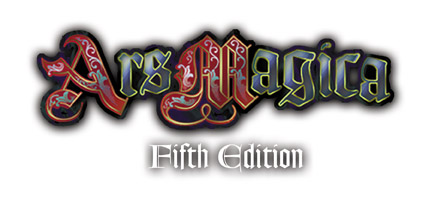Stonehenge Peripheral Code
Back to Stonehenge Tribunal
These rulings are either specific to the Stonehenge Tribunal or are Grand Tribunal rulings which apply to the entire Order.
Extraordinary Tribunal of A.D. 1227
Procedures in Dealing with the English King (Interfering with Mundanes)
The Tribunal Representative at the English Court shall follow the process similar to that of the Proctor of the Roman Curia: that the representative of the Tribunal's magi should be:
- Well-spoken in french (the language of the King's court)
- Gently Gifted or well-trained enough in the new Parma fold to blunt their Gift penalty
- A Quaesitor or Quaesitor-approved (i.e. versed enough in Hermetic Law to know where the law butts up against mundane and Church politics)
Extraordinary Grand Tribunal of A.D. 1226
Minimum Number of Quaesitores
Two covenants, staffed with Quaesitores at Habitancum (Loch Leglean) and Whitley Castle/Epiacum (Stonehenge) to be created
The covenants will be staffed by a rotating group of Quaesitores who serve for one Tribunal period and are paid by the Tribunal for their services. If they are not, the covenant will begin claiming vis sources to fund itself. The Primus of House Guernicus shall be responsible for providing the necessary Quaesitores to bring each Tribunal's count to eight. They shall serve one Tribunal period before being rotated out.
Each Tribunal must begin a training regimen to train enough Quaesitores to field 8 per Tribunal by Grand Tribunal 1261. The details of this training is left for the Tribunal to implement.
Tribunal of A.D. 1222
Magus Blood Rights (Apprentices)
A magus who is a blood relative of a Gifted child has precedence to claim the child for apprenticeship and a non-blood relative magus may not claim the Gifted child unless the blood relative recinds his claim first. This ruling does not apply to the Right of Bonisagus magi to claim any apprentice they wish for their studies per the Oath.
Tribunal of A.D. 1208
Limitation of Magical Silver (Interfering with Mundanes)
No covenant may put more than two pounds of magically created silver per resident into circulation each year.
- Towards the end of the twelfth century, a number of covenants in the Stonehenge Tribunal were using large amounts of magically created silver. The result was widespread inflation, and the value of silver halved over a few decades. A group of Redcaps brought the issue to Tribunal in 1208, and it was decided that this behavior was interfering with the mundanes, leading them to add the above line to the Peripheral Code. An attempt was made to punish those responsible, but because of the politics of the region the motion was defeated.
- The ruling did not cover gold, since gold is not used as currency in England. However, this has brought the issue to the attention of magi throughout Europe, and so most members of the Order practice moderation when using magic to create wealth, to avoid creating a precedent for a Grand Tribunal ruling.
Grand Tribunal of A.D. 1195
Hospitallers and Tribunal Powers of Declaring Enemies (Enemies of the Order)
Tribunals may not declare a multi-Tribunal order (such as the Hospitallers) as Enemies of the Order. Tribunals may only declare individual groups within those orders as Enemies within their Tribunal boundaries.
- The Stonehenge Tribunal of 1194 had declared the entire Hospitallers to be enemies of the Order, which Norman magi ignored. The issue rose to Grand Tribunal to determine how widely a Tribunal could declare an enemy of the Order.
Grand Tribunal of A.D. 1063
On Diabolism
The Servants of Satan, who so often make themselves enemies of our Order of Hermes, may never be friends of the Order.
- The Primus of House Jerbiton proposed that all demons and their servants be declared enemies of the Order in perpetuity. However, during debate, the members decided that such a declaration might start a war between the Order and demons, so the above amended ruling was made instead.
